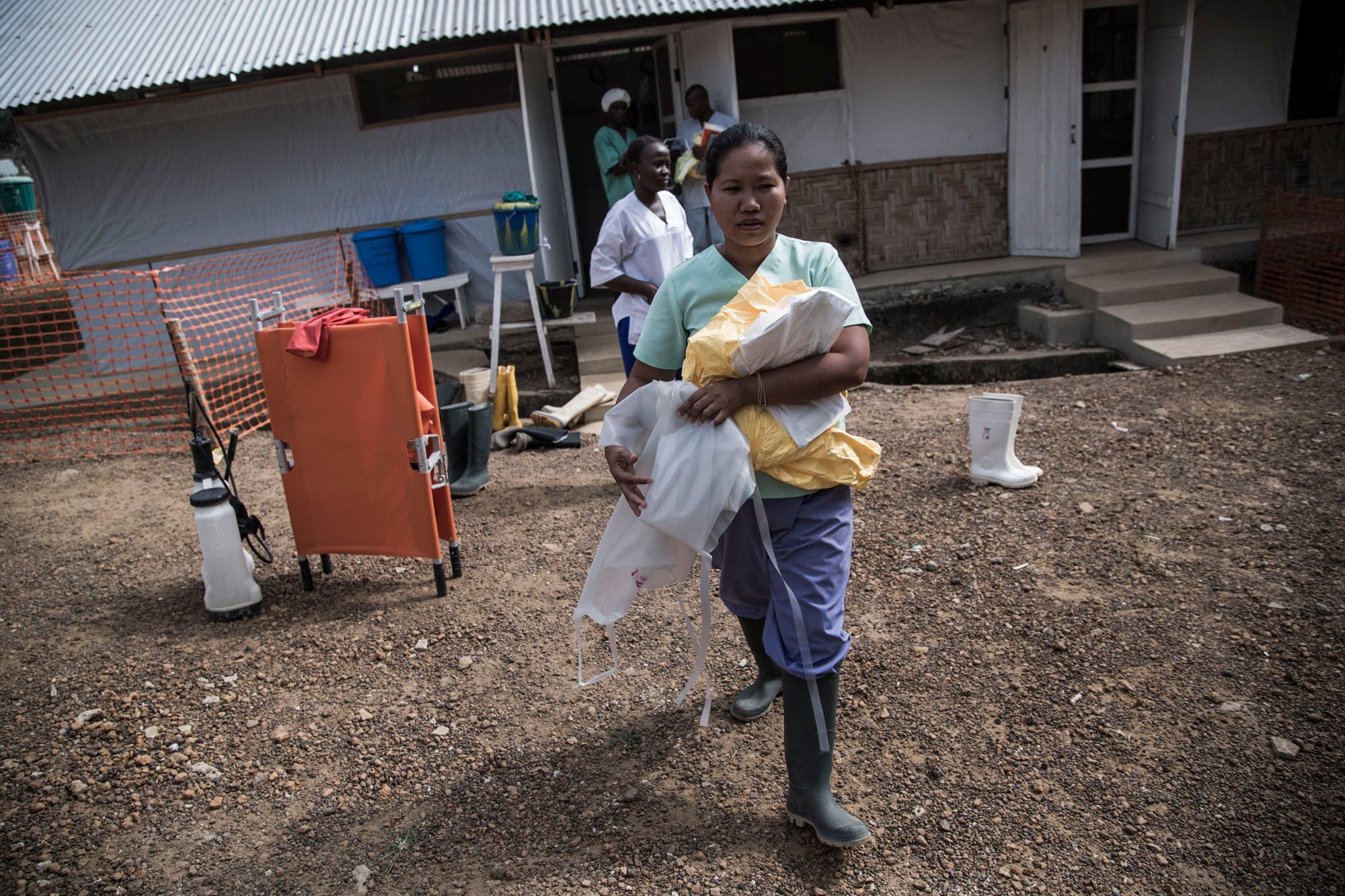Filipino nurse fighting Ebola: "Even a small mistake is not an option"

Nov 04, 2014
I was in Bo district, Sierra Leone, working as a nurse in a Médecins Sans Frontières (MSF), also known as Doctors Without Borders, health facility when the Ebola outbreak started last March 2014 in neighboring Guinea. It was only a matter of time before the first Ebola case in the country was confirmed – that was in May. In order to set up an Ebola management center, MSF cleared a space out of the bush in Kailahun, a town near the border with Sierra Leone and Guinea, where first confirmed cases of Ebola in Sierra Leone had been identified. Just a few days after opening, the center was overwhelmed with patients.
I was in Kailahun in August. The Ebola center was full. From 80 beds, we had to expand to accommodate more.
My main focus was on infection control. Part of it was training staff. Imagine a teacher who has a very sharp eye for possible risks and errors. That was me in Kailahun.
In Ebola response these are the most important things to remember - following the protocols 100% and using common sense. Even a small mistake is not an option.
I had to ensure that the setup of the isolation ward corresponds with MSF Ebola protocols to prevent cross-contamination. I had to be there for the staff to remind them and ensure that they do not forget the rules, for their own health and safety.
In the center, everyone's best friend is chlorinated water. We washed our hands hundreds of times a day with it and strictly followed the "NO TOUCH RULES". This means that I couldn't do the things that I normally do. No hugging, no handshakes, no kissing, etc.
The staff were prohibited to go inside the isolation ward alone. Before entering the isolation wards I had to wear layers of protection – yellow thick suits, layers of gloves, boots, goggles, masks, head cover, apron, etc – with an assistant watching me put on every piece of equipment to ensure that not a centimeter of skin was exposed. Because the suit is thick, and the weather can reach up to 35 degrees without air conditioning, you sweat a lot inside. So we could only work for 30 to 45 minutes inside the isolation ward. If sweat started to trickle into and irritate my eyes, it was an indicator that it was time to stop and go out.
The patient numbers were overwhelming. Many came from different villages in eastern Sierra Leone. We worked from six in the morning to collect the blood samples of the patients for testing and ended our day late.
We counted dead bodies every day. I felt mixed emotions – there was apprehension and sorrow but I felt a responsibility to work hard to provide this support and care to patients. Since there is no cure for Ebola, we could only give supportive care, treating a patient's symptoms to alleviate their suffering. We could not do more than give patients comfort from the pain caused by the virus, bring back their human dignity and show that we care for and respect them – those who lived as well as those who died.
But on the bright side, we also had patients who survived. Those were the most rewarding days working in an Ebola centre – seeing patients walk out of the centre alive, smiling and Ebola-free. The survivors were enough to give us encouragement to go on with our work.
Honney Maymor Panes, an emergency nurse from the Philippines, has been working with MSF since 2013. She is set to do another Ebola mission with MSF in Monrovia, Liberia this November.





Leave a Comment